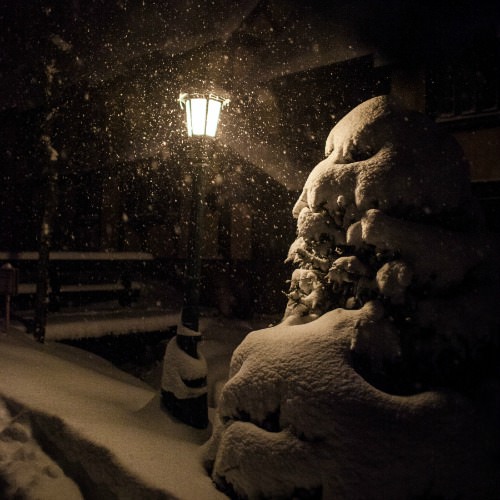 My mother died about a month ago, on 26 October, 2016. On the news recently, we heard of the tragic deaths of young people from meningococcal meningitis, one of whom who had just finished high school. Others have even died from severe attacks of asthma during the storm in Melbourne. On top of all these, the news of the death of a friend's sister literally brought on an attack of dizziness. In the midst of this mental storm, I prayed for silence and stillness.
My mother died about a month ago, on 26 October, 2016. On the news recently, we heard of the tragic deaths of young people from meningococcal meningitis, one of whom who had just finished high school. Others have even died from severe attacks of asthma during the storm in Melbourne. On top of all these, the news of the death of a friend's sister literally brought on an attack of dizziness. In the midst of this mental storm, I prayed for silence and stillness.
I find comfort and hope in these words of St Paul, 'I think what we suffer in this life can never be compared to the glory, as yet unrevealed, which is waiting for us.' (Romans 8:18-23)
When I shared these words with a prayer group, a woman shared her doubts in Jesus' resurrection and life after death. (She had heard people say that perhaps it was the vinegar and gall that was given to Jesus that anaesthetised him and put him to sleep. In their view, he did not die, he was just anaesthetised and later woke up from sleep instead of rising from the dead!)
I know there is a place for doubts in our faith, that doubt is the twin brother of faith. Having doubts can challenge and help strengthen our faith. I have my share of doubts but at this time, I have no ears for doubts. I just want to believe and hope in the resurrection, hope in Jesus' words that if we believe in him, we will never die. 'I am the resurrection. Anyone who believes in me, even though that person dies, will live. And whoever lives and believes in me will never die.' (Jn 11:25-26)
In one episode of the old style American family sitcom, Brady Bunch, the mother, Carol, had laryngitis, lost her voice and could not speak. (Incidentally, Florence Henderson, who played Carol Brady, died on 24 November, 2016, aged 82.) She was supposed to be singing a Christmas carol in church on Christmas day. The six children all felt down and disappointed that she would not be well for Christmas. Her youngest daughter, Cindy, queued up to see Santa. She did not ask for any present, she only asked Santa that her mother would be well and have her voice for Christmas. Santa tried to get out of it but ended up promising her that her mother would be well. Afterwards, the father, Mike, was very upset with Santa for making a promise he could not keep. He tried to tell Cindy that she may not get what she asked for. He told Cindy, 'He's not a doctor.' 'He's better than a doctor, he is Santa,' replied Cindy confidently.
That is hope, the hope that children have versus the doubts that adults have. Practising the sacrament of the present moment, living in the here and now, is good most of the time when all is well but we are worrying about the future or regretting the past. However, there are times in our life when being in the present moment is unbearable, and we prefer to escape from the here and now into a future of hope. In the face of deaths of loved ones, of sudden, tragic deaths even of strangers, we need to believe that this life is not all there is, to believe and hang on to words of hope from Scripture: 'Yes, I know what plans I have in mind for you, plans for peace, not for disaster, to give you a future and a hope.' (Jeremiah 29:11)
St Paul says, 'If our hope in Christ has been for this life only, we are of all people the most pitiable.' (1 Corinthians 15:19) Christianity asserts that Jesus died for his love of us and rose again. It promises, therefore, that death is not the end of all things. Indeed, the Catholic Church teaches that hope is a virtue and 'a weapon that protects us in the struggle of salvation.' (Catechism of the Catholic Church, 1820)
I like Ron Rolheiser’s image of death as second birth. When we die, we leave the physical confines of our bodies, and are born to an eternal life that we cannot imagine from within the womb of life.
And in C.S. Lewis' closing words in The Chronicles of Narnia:
'All their life in this world...had only been the cover and title page: now at last they were beginning Chapter One of the Great Story, which no one on earth has read, which goes on forever and in which every chapter is better than the one before.'
Susie Hii is a medical practitioner, CLC member and author of Happy, Healthy, Holy.